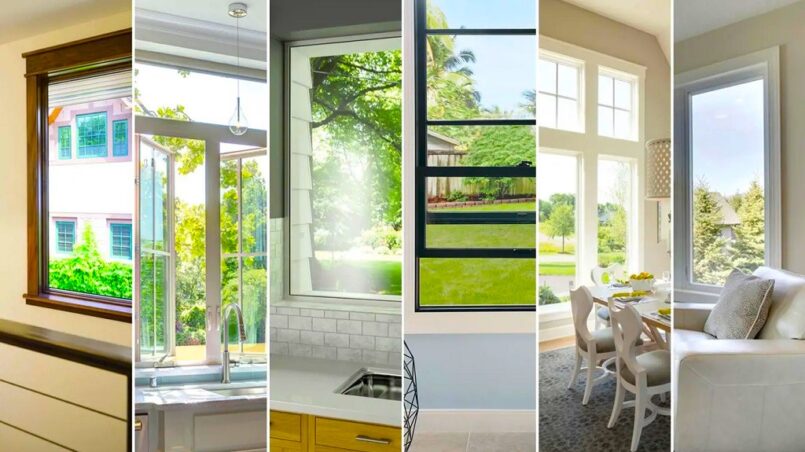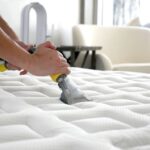A home’s overall performance, energy efficiency, and aesthetic appeal are greatly influenced by its windows. When selecting windows for your property, one of the most important decisions you’ll need to make is choosing the suitable material. The cost, maintenance needs, energy efficiency, and durability of window materials vary greatly. This exhaustive guide will delve into the various available window materials, highlighting their distinct features and essential factors to consider when selecting the ideal one.
Wood
Wood windows have been a preferred option for generations because of their classic style and inherent charm. Wood is a highly insulating material that may be used in dwellings across various climates. Wooden windows from JDI Windows a Denver Window Company, can be easily customized through staining or painting to match your home’s exterior and interior design. Wood windows must be painted, stained, and sealed regularly to guard against moisture, rot, and decay. Many homeowners appreciate wood windows’ classic look and warmth despite the maintenance requirements.
Vinyl
Because vinyl windows are inexpensive, need little upkeep, and are energy-efficient, they have become increasingly popular in recent years. Vinyl windows are made of PVC and come in various styles, colors, and finishes. They are ideal for houses in humid areas because they are incredibly durable and resistant to rot, moisture, and insect damage. Additionally, vinyl windows require minimal maintenance and can be easily cleaned with soap and water. While vinyl windows may not offer the same aesthetic appeal as wood or other materials, they provide a fordable and practical option for homeowners on a budget.
Aluminum
Aluminum windows are renowned for their robustness, low profile, and longevity. Aluminum frames are lightweight yet sturdy, ideal for large windows and modern architectural designs. Aluminum windows are resistant to rust, corrosion, and fading, making them suitable for homes in coastal areas or regions with harsh weather conditions. However, aluminum is a poor insulator and conducts heat and cold quickly, which can result in energy loss and decreased energy efficiency. Aluminum windows may feature thermal breaks or insulation inserts to improve energy efficiency.
Fiberglass
Fiberglass windows combine energy efficiency, robustness, and durability. Reinforced glass fibers in a resin matrix are used to create fiberglass frames composed of a lightweight but durable material. Because fiberglass windows are so resistant to rotting, swelling, and warping, they are appropriate for humid settings. Fiberglass has excellent thermal performance and is less prone to expansion and contraction than other materials, resulting in better energy efficiency and long-term durability. Investing in fiberglass windows is a costly affair. Regarding performance and durability, fiberglass windows are the choice over other materials, making them a worthwhile investment for homeowners in the long run.
Composite
Composite windows are constructed from a combination of materials, such as woo fibers, PVC, and polymers. Composite windows are the epitome of perfection, blending the robustness and longevity of materials like fiberglass with the sheer elegance of wood to offer the ultimate experience in functionality and aesthetics. Composite windows are highly resistant to moisture, rot, and decay, making them suitable for all climates. Composite windows are a great option because they require very little maintenance and can be personalized to match the style and design of your home. While they may be more expensive than other materials initially, they are a wise long-term investment since they are durable and perform exceptionally well.
Factors to Consider When Choosing Window Materials
Climate: Consider local weather patterns and the environment when choosing window materials. Select materials resilient to humidity, temperature, and severe weather changes.
Energy Efficiency Look for window materials with high thermal performance ratings to maximize energy efficiency and reduce heating and cooling costs.
Aesthetic Appeal: Consider your home’s aesthetic style and design preferences when choosing window materials. Make material choices that accentuate your property’s overall curb appeal and blend in with the architectural style.
Maintenance Requirements: Compare the upkeep needs of various window materials and select those best suit your maintenance preferences and way of life.
Durability and Longevity: Prioritize durability and longevity when selecting window materials. Use materials resistant to dampness, rot, decay, and insect damage to guarantee long-term performance and value.
Budget: When selecting window materials, take into account your financial limits. While some materials cost more upfront, they perform better and last longer, saving money in the long run.
Selecting suitable window materials is essential for optimizing your home’s performance, durability, and aesthetic appeal. Many solutions are available to meet your needs and preferences, whether you choose the timeless elegance of wood, vinyl’s cost-effectiveness, aluminum’s strength, fiberglass’s energy efficiency, or composite’s durability. To make an informed choice about new windows for your house, it’s essential to consider each type of window’s unique features and factors, such as climate, energy efficiency, aesthetic appeal, maintenance requirements, durability, and cost. Doing so lets you select the windows that will enhance your home’s appearance, provide maximum comfort, and increase its long-term value.













